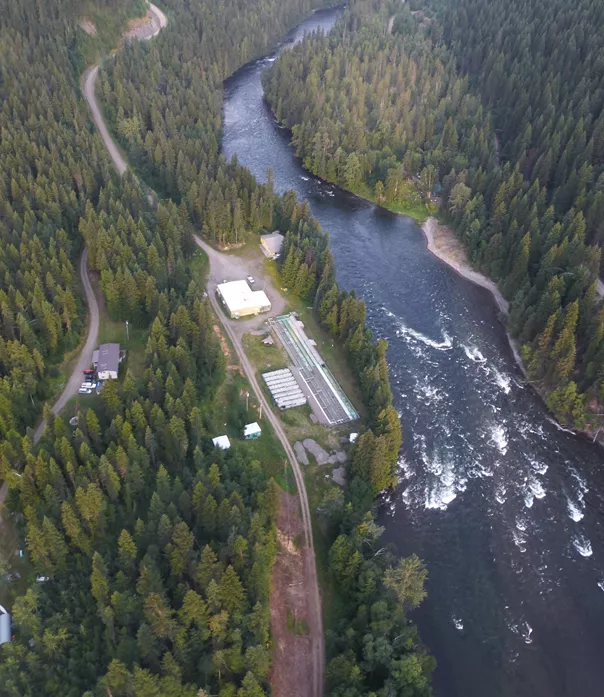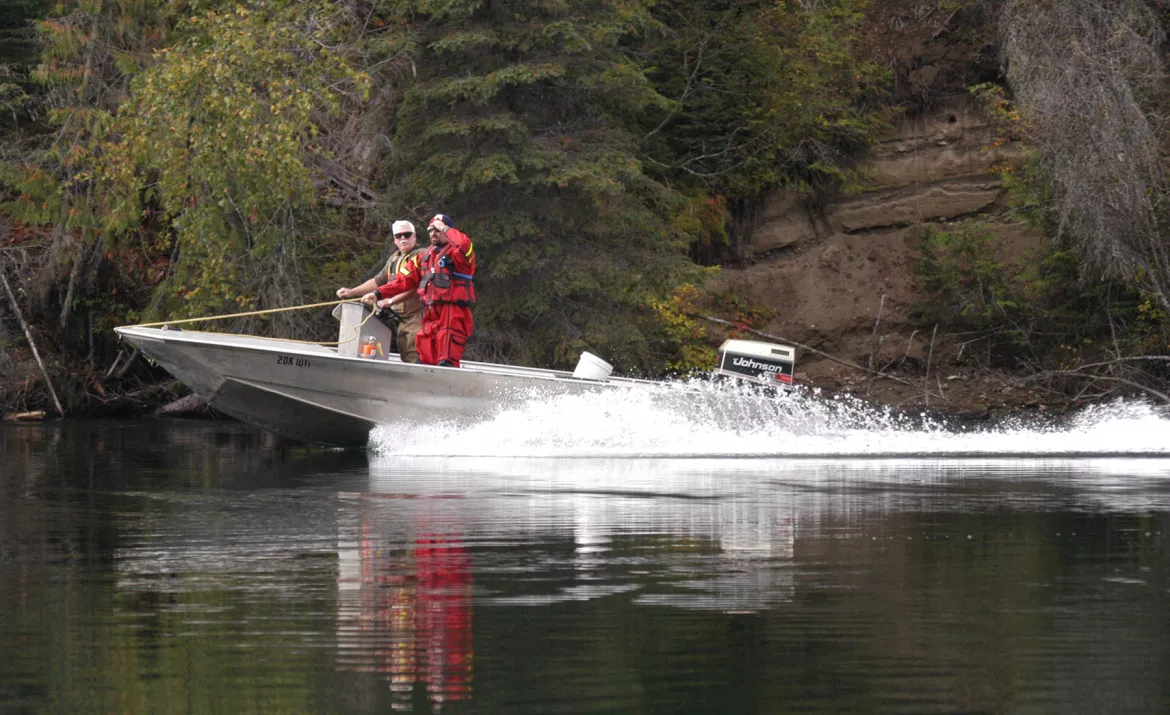Experience and learn about freshwater ecohydrology, limnology and fluvial geomorphology in a fascinating watershed located at the foothills of the Cariboo Mountains, in a globally-unique Interior Temperate Rainforest, on the banks of one of BC's premier salmon rivers, and at one of the world's deepest fjord-lakes. This field school is for UNBC undergraduate and graduate students as well as students outside our university. We will facilitate non-UNBC student participation via Skype/BlueJeans before our departure.

Schedule and Locations
Lectures: April 27 & 28, 2023
Location: UNBC Prince George campus
Field School: April 29 to May 12, 2023
Location: Quesnel River Research Centre (QRRC) in Likely, BC
Instructors
Dr. Ellen Petticrew
ellen.petticrew@unbc.ca
Dr. Faran Ali
faran.ali@unbc.ca
Eligibility
- Students who are in their 3rd and 4th year of undergraduate studies in Physical Geography or Environmental Science and Engineering;
- Natural Resources Management students who are interested in freshwater ecohydrology, limnology, fluvial geomorphology, developing field/lab skills and experiential learning;
- Graduate students who are studying Physical Geography, Environmental Science and Engineering, and related disciplines.
Costs
Tuition and course fees: approximately $1500
Courses
Prerequisite undergraduate courses: None but limited enrolment
Undergraduate Students
Field School:
- GEOG 333-3 - Geography Field School
Plus one of:
- GEOG 298-3 - Special Topics: Techniques in Ecohydrology and Aquatic Processes-I
- GEOG 498-3 - Special Topics: Techniques in Ecohydrology and Aquatic Processes-II
Graduate Students
Field School:
- NRES 763-3 - Geography Field School
Plus:
- NRES 798-3 - Special Topics: Techniques in Ecohydrology and Aquatic Processes-II
Field School Description

A group of up to 12 students can enroll in this combination of a field course and an independent study which have a focus on river and lake processes. The courses will have a lecture component to introduce students to the disciplines of hydrology and limnology while the field component of the courses will emphasize hands-on use of instrumentation to characterize some of the linkages between water and the local ecosystems.
The field course will take place in the Quesnel River watershed a large, variable catchment with a variety of ecozones, geological units and climatic regimes. Land use in the region includes forestry, mining, agriculture and eco-tourism including recreational fishing. The system supports the natal streams and the hatchery lake for economically important stocks of salmonids. Water quantity, movement and quality are important factors that act to regulate ecosystem operations.
A major mining disaster occurred in the watershed in 2014, resulting in a massive deposit of copper-gold mine tailings being delivered to the West Basin of Quesnel Lake. The delivery of this material resulted in the scouring of a 9 km creek which has since been hydrologically restored by Imperial Metals. The mine spill will be used as a case study to evaluate disturbance to rivers and lakes in the watershed.
The course will take place in early May such that spring freshet flows will be able to be sampled in a number of small creeks in the vicinity of the field station (QRRC). Techniques in measuring stream discharge, suspended sediment loads and the collection of bulk samples will comprise part of the course. Chemical analysis of these samples will be undertaken by UNBC’s Northern Analytical Laboratory Services. Hands on experience with instrumentation to measure and characterize the stream flow will occur for both the rivers and the lake water column. Several boat trips with students will allow access to Quesnel Lake to allow a characterization of water column profiles which will be used to evaluate spring overturn lake processes. Students will also be using the 30 m gravel bed flumes at the QRRC which will allow experimentation and simulations of river processes. Several group projects will be undertaken during the period of time at the QRRC and will comprise the GEOG 298 and GEOG 498/sites/default/files/sections/geography/field-schools/geog333poster2023final_1.pdfNRES 798 components. Graduate students enrolled in NRES 763 will be expected to be involved in the Field School with assignments additional to that of the undergraduates in GEOG 333.